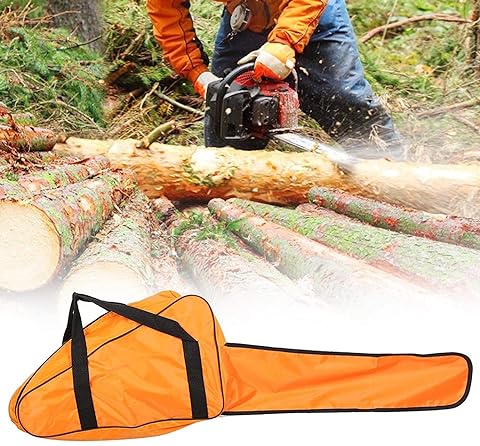In the world of chainsaws, finding the best type can be a daunting task given the plethora of options available on the market. Factors such as power source, bar length, intended use, and personal preferences all play crucial roles in determining the most suitable chainsaw for your needs. In this guide, we'll delve into the key considerations to help you identify the best type of chainsaw for your specific requirements.
1. Power Source:
Chainsaws are typically classified into three main categories based on their power sources: gas-powered, electric, and battery-powered (cordless). Each type has its own advantages and limitations:
- Gas-powered chainsaws: Known for their robustness and high performance, gas-powered chainsaws are ideal for heavy-duty tasks and professional use. They offer excellent mobility but require regular maintenance and emit exhaust fumes.
- Electric chainsaws: Electric chainsaws are lightweight, easy to start, and emit zero emissions during operation. They are suitable for light to medium-duty tasks and are preferred for indoor use or in noise-sensitive environments.
- Battery-powered chainsaws: Cordless chainsaws provide the convenience of mobility without the constraints of cords or the emissions of gas-powered models. They are ideal for occasional use, light-duty tasks, and applications where noise and emissions are a concern.
2. Bar Length:
The length of the chainsaw bar, which determines the cutting capacity, is another crucial factor to consider:
- Shorter bar lengths (under 16 inches): Suitable for light pruning, trimming, and small-scale cutting tasks. They offer maneuverability and are less intimidating for novice users.
- Medium bar lengths (16 to 20 inches): Versatile and suitable for a wide range of tasks, including felling small to medium-sized trees, bucking, and limbing.
- Longer bar lengths (over 20 inches): Designed for heavy-duty tasks such as felling large trees and cutting thick logs. They offer greater cutting capacity but may be heavier and less maneuverable.
3. Intended Use:
Consider your specific cutting needs and intended use when selecting a chainsaw:
- Homeowner use: If you primarily need a chainsaw for occasional yard maintenance, pruning, and light cutting tasks around the home, a lightweight electric or battery-powered model may suffice.
- Professional use: For professionals and individuals engaging in frequent or heavy-duty cutting tasks such as tree felling, logging, and firewood production, a powerful gas-powered chainsaw with a longer bar length is recommended.
- Specialty tasks: Certain chainsaw models are designed for specific applications such as carving, milling, or arborist work. Choose a chainsaw tailored to your specialized requirements for optimal results.
4. Brand Reputation and Reliability:
Research and consider the reputation and reliability of different chainsaw brands before making a purchase. Look for brands known for their durability, performance, after-sales support, and availability of spare parts and accessories. Reading user reviews and seeking recommendations from professionals can help you gauge the quality and reliability of different brands.
Conclusion:
In conclusion, the best type of chainsaw ultimately depends on your individual needs, preferences, and intended use. By carefully considering factors such as power source, bar length, intended use, and brand reputation, you can identify the perfect chainsaw to tackle your cutting tasks with ease and efficiency. Whether you're a homeowner seeking a versatile tool for occasional use or a professional in need of a rugged workhorse, there's a chainsaw out there to meet your specific requirements.

More Stories
ATLAS COPCO 3002600320 PACKAGING KIT
Simple Structure and Principle of Radial Extrusion Molds
Kangchi Fastener Unveils Innovative Flange Nut Design to Enhance Industrial Efficiency